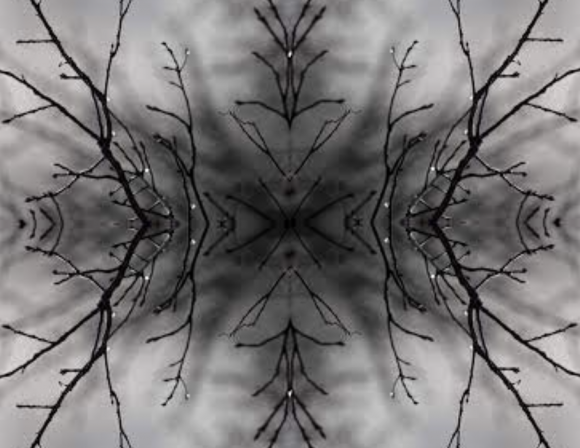I was a little too quick with what I called the “second man” problem, in my discussion of the implied theory of ghosts in Reginald Hill’s story. I noted, first, the obvious: that a second man appeared in the ghost sighting episode where the first man was killed, and that this second man is later recognized as one of the still living players in the plot — and hence whatever was sighted couldn’t have been “his ghost”. I then went on, secondly, to state that the way the ghost sighting episode itself is cast (as a kind of video projection-like replay of the past) makes this less problematic, for on this metaphor the supposed “immaterial character” of the two men who were sighted wasn’t derived from their status of ghosts (as disembodied former persons), but rather from their character of projected images. (It still leaves the mystery how that kind of projection is supposed to work, and how exactly such images would be produced. But clearly, that is solved in the story by invoking poetic license, making it subject to standard suspension of disbelief: Hill puts it in the mouth of Chislenko himself, when he calls the sighting episode a case of “a supernatural projection of what happened fifty years ago” in his conversation with the minister; my emphasis.)

But this is to move too quickly. The whole significance of the episode derives from the way it exposes a murder that happened in the past, and thus both the death itself and the fact that human society had covered it up drive the necessity that brings the real events back to the light. Whatever the mechanics, in other words, of the projection, its deeper motives are still inextricably linked with its “ghostly” character. And to his credit, Hill had recognized this: he didn’t gloss over the “second man” problem, and in fact made an attempt to resolve it within the narrative itself. Unfortunately, it’s a rather botched attempt.
When it becomes clear, towards the end of the story, that the second man still lives, and Natasha recognizes him when she first encounters him, she immediately makes the connection and asks the right question. And Chislenko replies:
‘I don’t know!’ said Chislenko talking rapidly in an effort to soothe her. ‘When I was young and clever I read Dante in translation and there’s a bit in the Inferno where he meets the spirit of a man who’s so evil that he’s already condemned into hell while his body’s still walking round alive on earth. Perhaps that’s it! But I don’t know. I don’t understand any of it. Why’s it happened? What’s it mean?’
Hill must have realized how improbable all this is. He tries to distract from it with a number of exclamations that express uncertainty, even a small bit of panic on Chislenko’s part. That may or may not be plausible in his character. But what certainly isn’t plausible in the least is this sudden literary background, improbably inserted (with a sudden “when I was young and clever”) at a late moment into a protagonist who so far has not appeared to be an intellectual. And unless this were a predominantly intellectual personality (such as, say, Robert Langdon), it would be all the more unlikely that such long-forgotten intellectual background arises precisely in the moment of existential threat to a loved person — especially now, given the upheaval he’s portrayed to be in.
But worse than the uncharacteristically clumsy (for Hill) attempt to insert a bit of theoretical plausibility support here, it really doesn’t help much either, even if looked at merely based on its theoretical merits. For one thing, if a spirit is banished to hell, as in this Dantesque interpretation, that only makes sense if the spirit is what we’ve discussed earlier in terms of a disembodied ego: a continuation of the person’s psychology, independent of their body. But as we have seen, in the world of this story the continuation of a person’s psychology is not what makes them ghost-like: what makes them so is their “projected image”, something more akin to their physical presence, not their internal mental world. In Dante’s hell, we’d have to assume that the spirit can still perceive, feel pain, and (most importantly) guilt and remorse. None of that makes any sense for ghosts in Hill’s story world. (Not even for the ghost who is a ghost, i.e. the ghost of the man who was killed.) For another thing, this interpretation preempts the ending: the second man (being the murderer) is not yet in hell, in fact, his punishment comes at the end of the story, practically immediately following Chislenko’s venturing that guess. So if he’s already a spirit in the (earlier) ghost sighting episode, that would predate his eventual fall, not postdate it (so he cannot yet be a spirit then, if being a spirit, i.e. “going to hell”, means getting just desert for his evil act). The whole idea seems like a nice try, but ultimately falls flat. Perhaps the hope here was that it would go mostly unnoticed how unconvincing it really is.



